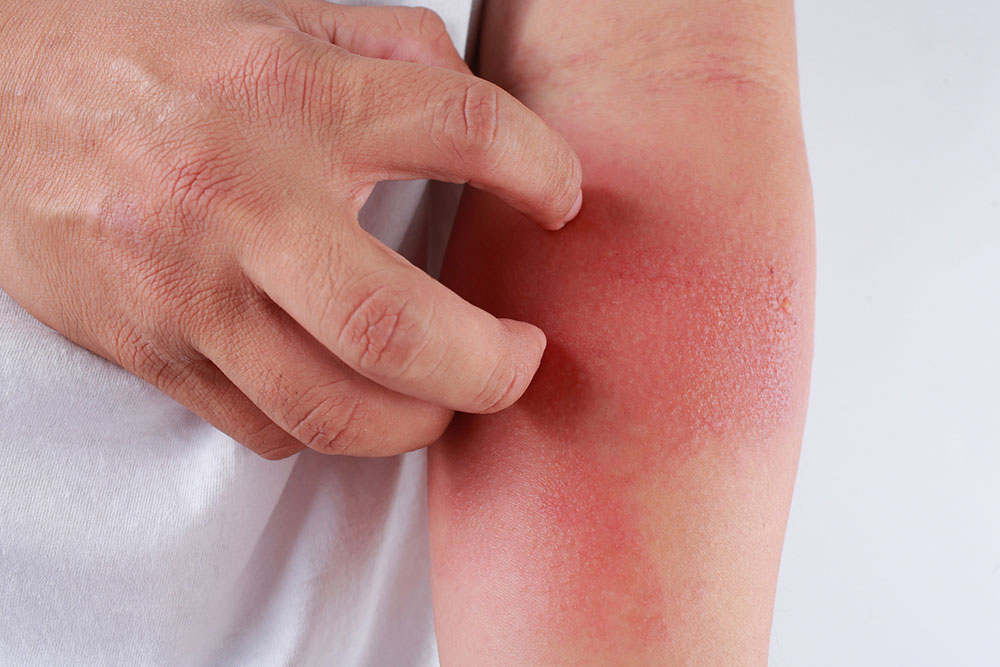Effective Dietary Strategies to Manage Eczema: Foods to Incorporate and Avoid
Learn effective dietary strategies to manage eczema by incorporating anti-inflammatory foods and identifying personal triggers. This comprehensive guide covers foods to embrace and avoid, offering practical tips for reducing flare-ups and supporting healthier skin through nutrition.

Comprehensive Guide to Eczema-Friendly Nutrition: What to Eat and What to Avoid
Eczema, medically known as atopic dermatitis, is a chronic skin condition characterized by dry, itchy, inflamed skin that can significantly impact quality of life. Although the exact causes of eczema remain complex and multifaceted, recent research highlights the importance of immune response and environmental triggers. Many individuals also find that their dietary choices play a vital role in managing symptoms. Adjusting your diet by avoiding specific food triggers and embracing nutrient-rich, anti-inflammatory foods can help reduce flare-ups and promote healthier skin.
Foods That Help Eczema Symptoms Choosing the right foods is essential for soothing eczema and preventing flare-ups. Since food sensitivities may vary from person to person, identifying your specific triggers is crucial. Some common allergens such as eggs, dairy, gluten, soy, nuts, and shellfish can intensify symptoms for some individuals, so monitoring your reactions and conducting elimination diets can be beneficial.
Consuming foods rich in omega-3 fatty acids, like fatty fish such as salmon, mackerel, sardines, herring, and tuna, can help combat inflammation, which is often linked with eczema severity. Including probiotic-rich foods such as yogurt, kefir, miso, kimchi, and fermented drinks supports gut health, which in turn can influence skin health. Additionally, fruits and vegetables high in quercetin, a potent antioxidant, such as cherries, broccoli, kale, and spinach, have anti-inflammatory properties that help soothe irritated skin and mitigate allergic responses.
Other beneficial foods include bananas, which provide potassium; potatoes, rich in potassium and vitamin C; bone broth, which offers glycine that supports skin repair; green onions, packed with vitamin K; rice milk, a hypoallergenic dairy alternative; buckwheat, with anti-inflammatory properties; and mung bean sprouts, which help alkalize the body. Recognizing individual reactions and adjusting dietary intake accordingly can be achieved through systematic elimination and reintroduction of potential trigger foods. Usually, reactions manifest within hours to days, making diligent monitoring necessary to pinpoint specific sensitivities.
Identifying and avoiding foods that cause flare-ups can be challenging. Common culprits include citrus fruits, gluten-containing grains, soy products, certain spices, nuts, and tomatoes. An elimination diet—temporarily removing these foods for about four to six weeks—allows you to observe any changes in eczema symptoms. During this period, keeping a detailed food journal can help correlate food intake with flare-up patterns. After the elimination phase, foods can be gradually reintroduced, one at a time, to assess individual tolerances.
There is no universal eczema diet suitable for everyone, but dietary patterns emphasizing high antioxidant and anti-inflammatory foods tend to be beneficial. The Mediterranean diet, rich in fruits, vegetables, nuts, and healthy fats such as olive oil, is often recommended for its inflammation-fighting properties. Emphasizing fiber, omega-3 fatty acids, and nutrient-dense foods can help modulate the immune response and reduce skin inflammation. In cases where eczema symptoms worsen or persist, consulting with a healthcare professional or a registered dietitian is essential to develop a personalized nutrition plan. Alongside dietary adjustments, proper skin hydration and topical treatments should continue as part of a comprehensive management strategy.
Maintaining an eczema-friendly diet requires mindful choices and ongoing monitoring, but the benefits—less inflammation, fewer flare-ups, and healthier skin—are worth the effort. By understanding your unique sensitivities, incorporating supportive foods, and avoiding common triggers, you can better manage eczema and improve your overall skin health. Remember, dietary changes should complement medical advice, and professional guidance can help tailor an effective plan specific to your needs.





